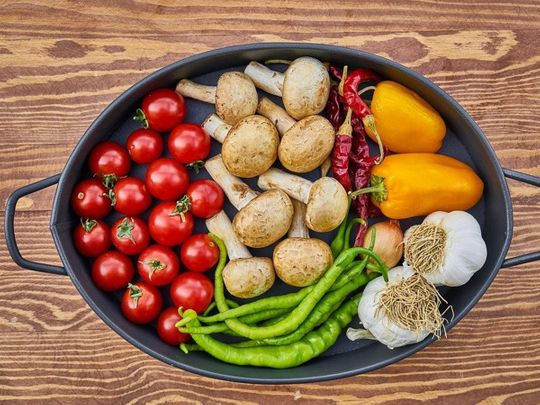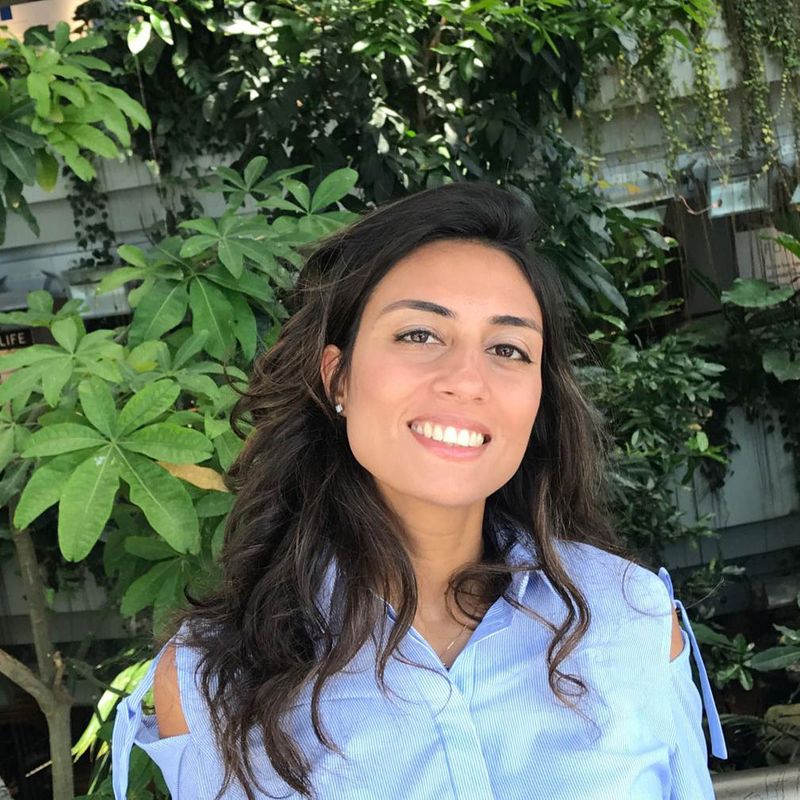
Meet Farah Hillou
She is a licenced nutritionist, registered dietician and a certified practitioner of functional nutrition.
We caught up with Farah to find out what she eats during the day to stay healthy during Ramadan.

Hi Farah, tell us about your suhoor, what do you typically eat?
I tend to have a light suhoor as I feel uncomfortable if I overeat and then head back to bed. I often go for a few energy balls that I’ve prepared earlier (with dates, nuts, nut butter, seeds) - or a fruit (banana/berries) with a handful of nuts (almonds/walnuts) - or a slice of wholegrain gluten free toast with hummus and chopped vegetables - or gluten free oats with almond milk, almond butter, pumpkin seeds and fruit.
Many people advocate for meal prepping to encourage healthy eating - do you recommend meal prepping in advance during Ramadan?
Yes absolutely! Planning and preparing beforehand can really save on time and energy! Knowing in advance what will be served for iftar and suhoor can be a relief particularly when several dishes are prepared and there is limited time. Cooking the day before or on weekends greatly helps. Writing down “the menu” helps envision it and pin-points any missing important key foods or nutrients (like some more vegetables).
We are thinking about food all the time, how normal are cravings while you are fasting?
With the many cooking shows on television, the smell of food coming from the kitchen, and the long conversations about yesterday’s iftar, I would say cravings are quite common! On a more serious note though, feelings of hunger and cravings are considered normal especially during the first few days of fasting. The body is then capable of adapting physiologically and balancing hormones such that we are not affected by these feelings as much and they become more manageable.
When it’s time to end your fast, what do you start with?
Always dates for a burst of energy, followed by room temperature water, a small bowl of soup (usually vegetable or lentil), and then salad (a bread-less fattoush for me!).
What do you like to eat for Iftar?
First and foremost homemade food! I love having warm soup after a long day’s fast, and a colorful salad is a must! This is usually followed by a saucy stew prepared with mixed vegetables, a source of protein like meat or chicken, and a controlled portion of rice or legumes. Almost all of our meals are traditional Levantine and so they are rich in herbs and spices and flavor! We also aim to eat fish and seafood a few times a week, and we will often have a vegetarian dish on the table.
Okay, tell us the truth, do you have Ramadan desserts?
Yes! I do practice portion control though (as difficult as that may be!)
I’m the one in the family who is usually trying to create healthier dessert alternatives. Once in a while however, I give in to my all-time favorite Ramadan dessert, Atayef. Although this is traditionally fried and soaked in sugar syrup, I prefer to have it baked and sweetened with a touch of honey.
How much water do you drink throughout the night?
From the time I break my fast, I aim to have the equivalent of 1.5 liters of water, add to that extra fluids I get from soup and herbal teas. I always keep water in front of me to remind me to keep drinking!
Any other words of wisdom to share?
The holy month of Ramadan is a beautiful time to practice compassion, gratitude, balance, and connection with loved ones. Here are a few things to keep in mind:
• Over-eating is very common, and it’s important that we stop eating when we are 80% full. We also need to be mindful about chewing food thoroughly.
• Food waste is also a challenge in Ramadan. We should not shy away from using leftovers.
• There is no shortage of engaging television programs in Ramadan. However, it is important that we spend less time sitting and instead participating in some exercise.
Finally, the month of Ramadan a chance to be mindful of what is going inside our bodies. We have the opportunity to cleanse the body off any toxins, and return it to a natural state of health and wellness.








